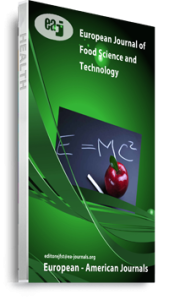Blends of coconut (Cocos nucifera) oil (CO) and sesame (Sesamum indicum) oil (SO) were enzymatically interesrerified using aqueous lipase derived from Rhizomucor miehei and the reaction conditions, namely, temperature (45-65 °C), time (16-48 h) and mass ratio of oils (CO:SO; 70:30 – 50:50) were optimized using Response Surface Methodology (three-factor, three-level central composite design). Degree of interesterification (DI), and the ratio of monounsaturated and polyunsaturated fatty acids (MUFA:PUFA) of triacylglycerols were used as response variables. The linear effects of all factors were significant for the DI while for MUFA:PUFA, the linear effect of oil ratio and interaction effect of time and oil ratio showed significant effects. The conditions, temperature; 57.12 °C, time; 16 h and weight ratio of oil (CO:SO); 50:50 were found to be the optimum. The R2 value for DI and MUFA:PUFA ratio were 0.80 and 0.82, respectively. Models fitted for both DI and MUFA:PUFA ratio were significant with non-significant lack of fit. Therefore, the constructed models and data provide useful information to produce structured lipid from interesterification of CO and SO in up-scaled level. The produced novel lipid containing beneficial fatty acids from both oils could be used to produce healthy fat based products.
Keywords: coconut oil, interesterification, lipase, optimization, sesame oil

